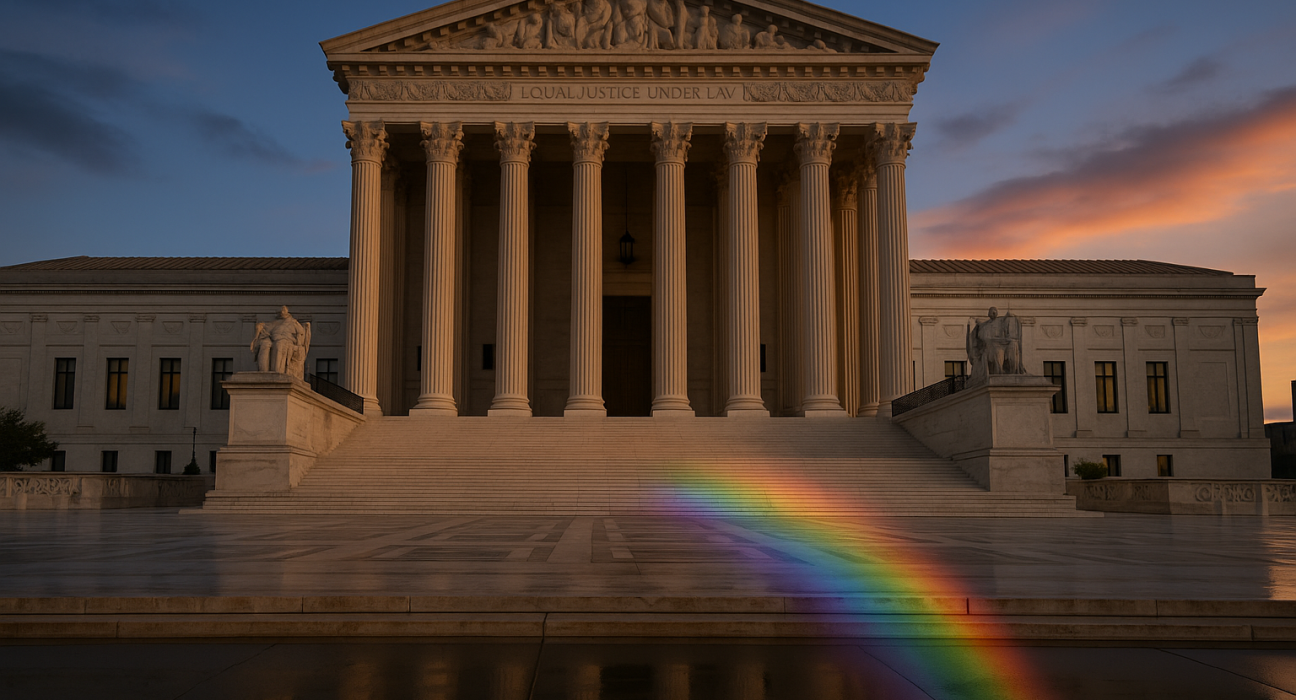The U.S. Supreme Court on Monday declined to hear the appeal of Kim Davis, the former Kentucky county clerk who refused to issue marriage licenses to same-sex couples after the 2015 Obergefell v. Hodges ruling. The court’s decision effectively leaves the landmark precedent on same-sex marriage intact, easing fears among LGBTQ advocates that the current conservative majority might reopen the issue.
Background and significance
The Obergefell decision, written by Justice Anthony Kennedy in 2015, recognized same-sex marriage as a constitutional right under the Fourteenth Amendment, guaranteeing equal protection and due process. The ruling legalized same-sex marriage nationwide and has since led to more than 600,000 marriages, according to the UCLA Williams Institute.
Kim Davis, a Rowan County clerk at the time, refused to issue marriage licenses to any couples following Obergefell, citing religious objections. Her actions led to lawsuits from affected couples, a contempt-of-court finding, brief jail time, and a later damages award of $360,000. Davis appealed, arguing that the First Amendment’s religious protections shielded her from personal liability and that Obergefell was wrongly decided.
Court’s refusal and political context
The Supreme Court denied Davis’s petition without comment, leaving in place lower-court rulings that found her liable for damages. The court’s silence drew attention because of its conservative makeup — a 6-3 majority — and its willingness in 2022 to overturn Roe v. Wade, another major social precedent. That reversal sparked concerns that Obergefell could be next.
Several conservative justices, however, had recently signaled caution. Justice Amy Coney Barrett told The New York Times that there are “very concrete reliance interests” in marriage equality, meaning that undoing it could disrupt millions of families. Justice Samuel Alito, while still critical of Obergefell, acknowledged that it remains binding precedent under stare decisis — the legal doctrine that courts should respect settled law.
LGBTQ advocates hailed the decision as a major relief. Kelley Robinson of the Human Rights Campaign called it “another victory for love,” emphasizing that public officials must uphold constitutional rights for all citizens. Civil rights lawyer Mary Bonauto, who argued Obergefell, said the ruling has strengthened communities and economies by giving families legal stability.
Conservatives critical of Obergefell vowed to continue challenging it. Mat Staver of Liberty Counsel said his group would pursue avenues to overturn the decision, comparing it to the long campaign that eventually reversed Roe.
Broader implications
While this refusal to hear Davis’s appeal sets no new precedent, it underscores the court’s current unwillingness to reopen same-sex marriage rights. Nonetheless, legal analysts note that challenges could still arise if new cases frame the issue through religious liberty rather than equal protection.
At the same time, the Supreme Court has issued rulings in recent years limiting protections for transgender Americans — such as upholding bans on gender-affirming care for minors and maintaining restrictions on passport gender markers — suggesting that broader LGBTQ legal rights remain contested.
Projections
- Short term: Marriage equality remains secure under federal law, calming immediate fears in LGBTQ communities.
- Medium term: Religious-liberty arguments could resurface in narrower contexts (e.g., wedding-service refusals).
- Long term: The balance between civil rights and religious expression will likely shape future Supreme Court cases involving LGBTQ Americans.
References
- CNN: “Supreme Court declines to revisit same-sex marriage precedent” (Nov 2025)
- Associated Press: “Court rejects Kim Davis appeal over same-sex marriage licenses”
- Reuters: “Supreme Court sidesteps major test of same-sex marriage ruling”
- NBC News: “Justices leave Obergefell intact, reject former clerk’s plea”
- Williams Institute, UCLA School of Law: Marriage Demographics and Equality Statistics (2025)
